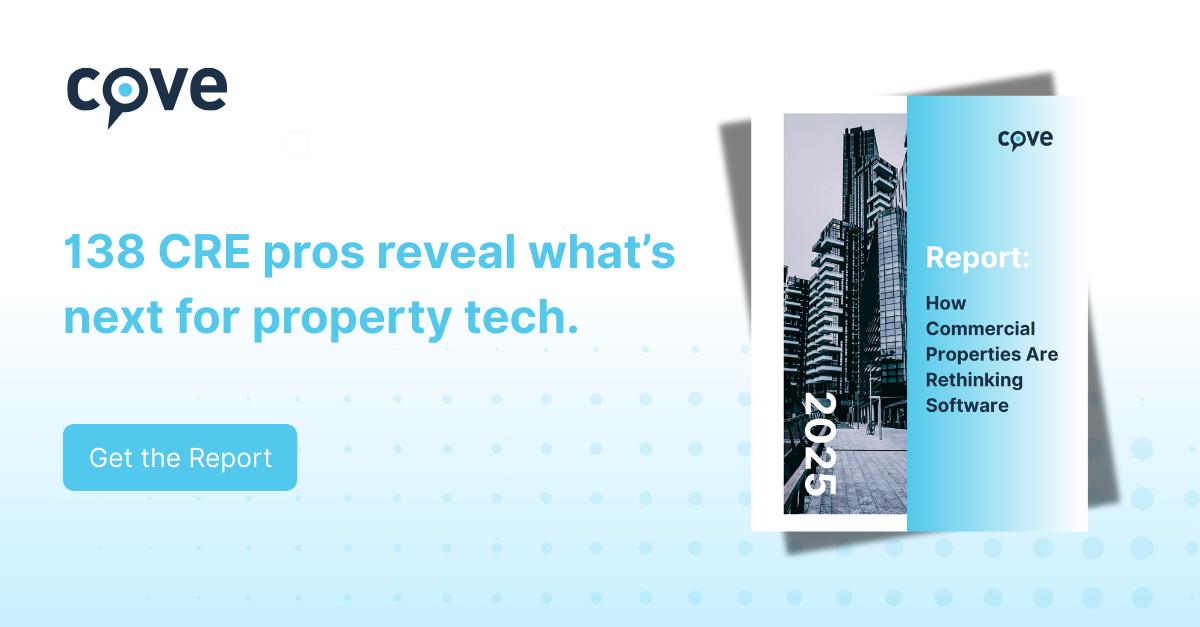Several respected organizations offer designations that have become must-haves for ambitious property and facility managers. These programs are practical training courses that address real pain points like controlling operating costs, reducing downtime, and improving tenant satisfaction.
Below, we explore five of the most valuable certifications for U.S. commercial property professionals.
Certified Property Manager (CPM)
The Certified Property Manager (CPM) is offered by the Institute of Real Estate Management (IREM), providing training for managing all types of real estate assets. Earning your CPM means you’ve mastered subjects like financial planning, leasing, maintenance, ethics, and legal compliance in property management. In fact, holding this designation proves that you have the knowledge to maximize the value of any property in any asset class. It’s a prestigious credential recognized by employers and property owners nationwide. With a CPM, you signal that you’re committed to the highest standard of professionalism in real estate management.
CPMs tend to earn higher salaries and advance faster in their careers than their non-certified peers. According to IREM, the average U.S. property manager’s base salary is around $62,000, while CPM holders average about $139,000 – more than double This reflects the fact that CPMs often move into senior positions; over half of CPM designees hold executive or director-level roles in their firms. From an owner’s perspective, having a CPM manage your building means you have someone who understands how to increase net income and reduce risk through savvy management. If you’re looking to earn the CPM yourself, start by reviewing the prerequisites.
You’ll need roughly three years of property management experience to qualify for the designation. Once eligible, you enroll in a series of courses (IREM offers about eight core courses covering topics like finance, marketing, and asset management) and then pass the CPM Capstone, which includes a management plan assessment and a comprehensive exam.
It’s a rigorous process, but you don’t have to do it alone – many local IREM chapters offer study classes or mentors to help candidates. Achieving the CPM is well worth the effort. You’ll gain practical skills you can apply immediately to your properties, and you’ll join a network of experts. With a CPM, you know more, do more, and earn more – positioning yourself as a true leader in commercial property management.
Real Property Administrator (RPA)
If you’re focused on the daily operations and financial performance of commercial buildings, the Real Property Administrator (RPA) designation is a must-have credential. The RPA, administered by BOMI International (in partnership with BOMA), is designed specifically for property managers and asset managers responsible for office buildings, industrial properties, and other commercial facilities. This program gives you a deep dive into how to run a building strategically. By pursuing the RPA, you’ll learn to enhance the value of a building through smart decision-making, from its design and maintenance to its budgeting and leasing. Courses in the RPA program cover critical areas like budgeting and accounting, risk management and insurance, environmental health and safety regulations, leasing and marketing, and even an asset management component that teaches you to think like an owner. It’s a comprehensive curriculum that prepares you to maximize a building’s net income while minimizing risks, which ultimately boosts your standing in the industry.
What makes the RPA especially valuable is its immediate impact on your job performance. You’re not just studying theory, you learn practical techniques that you can apply in your building the very next day. In fact, a recent study by BOMI International found that 97% of professionals who completed the RPA (or its sister designation, FMA) reported improved job performance and career prospects after finishing the program. Even more impressive, 72% of RPA/FMA graduates said they were able to reduce their building’s operating expenses as a result of the cost-saving strategies they learned in the courses. These are huge wins for any property manager facing pressure to cut costs without sacrificing service. With results like that, it’s clear why many employers encourage their property management teams to earn the RPA. If you’re an owner or asset manager, supporting your property manager in getting this certification can pay off in more efficient building operations and higher asset value.
From a career standpoint, pursuing the RPA is a smart move if you have a few years of experience and want to advance. You can start the program at any time. There’s no lengthy prerequisite aside from eventually documenting three years of property management experience to receive the designation.
Scholarships may be available through local BOMA chapters to help with costs. By enrolling in RPA courses (there are about eight in total, ranging from Law and Risk Management to Building Systems and Asset Management), you’ll immediately start to see your knowledge grow. You’ll gain confidence discussing complex topics like lease analysis or contractor bidding, and you’ll become the go-to person on your team for best practices. In short, the RPA gives you the tools to run your building like a well-oiled machine and demonstrates your commitment to being a top-notch property manager.
Facilities Management Administrator (FMA)
Commercial property management often goes hand-in-hand with facilities management – focusing on the day-to-day operations, maintenance, and tenant comfort within buildings. If your role leans more toward facilities (for instance, overseeing building engineers, service contractors, and safety programs), then the Facilities Management Administrator (FMA) designation is a perfect fit. Also offered by BOMI International, the FMA program is tailored to facility managers responsible for a building’s daily operational performance.
By earning the FMA, you’ll learn how to manage facilities in a way that best supports the people inside, while meeting your organization’s overall objectives. This includes mastering how to plan maintenance, manage work orders and repairs, control energy costs, and ensure a safe, comfortable environment for occupants. In essence, the FMA curriculum turns you into a strategic operator who can align the facility’s performance with the company’s mission. It emphasizes creating a productive workplace, handling tenant service issues effectively, and keeping the building systems running optimally.
Having the FMA under your belt can greatly enhance your effectiveness as a facility or property manager. Graduates of the program often remark that it taught them the core principles of building management and broadened their capabilities, enabling them to step up as leaders in their organizations. With an FMA, you’ll be equipped to minimize maintenance costs while addressing issues proactively. For example, you’ll know how to implement preventive maintenance schedules that reduce unexpected breakdowns, and how to evaluate service contracts to get the best value. All of this translates into fewer headaches for you and happier tenants in the building. If you’re considering the FMA, you can pursue it early or mid-career; similar to the RPA, you’ll need to show three years of facilities management experience to be awarded the designation, but you can take the courses before you hit that mark.
The program’s flexibility means you can learn at your own pace, taking courses online or through local BOMI partners. To get started, identify which knowledge gaps you want to fill. Are you looking to sharpen your HVAC and building systems know-how? Or perhaps improve your budgeting for facility projects? The FMA includes courses covering those areas and more.
Try applying what you learn in each FMA course to a real issue in your building. If you just learned about energy management, conduct an energy audit of your facility; if you studied space planning, see if you can reconfigure an underutilized area to better serve tenant needs. This way, you’ll see immediate benefits from your training. Ultimately, the FMA designation not only validates your expertise to others – it gives you the practical skills to run a better building, day in and day out.
Certified Facility Manager (CFM)
Another highly respected credential in the industry is the Certified Facility Manager (CFM), offered by the International Facility Management Association (IFMA). Unlike the FMA (which involves coursework), the CFM is a competency-based certification – essentially, you prove your knowledge by passing a comprehensive exam that covers all aspects of facilities management.
Earning the CFM means you have demonstrated mastery in areas such as operations and maintenance, project management, finance, leadership strategy, real estate, quality, technology, and more. In fact, IFMA describes the CFM as “the industry standard for ensuring the knowledge and competence of practicing facility managers.” When you hold this title, it tells employers and clients that you can handle the full spectrum of challenges that come with managing complex commercial facilities.
Pursuing the CFM is a serious commitment, but it can significantly elevate your career. To be eligible, you’ll typically need at least five years of hands-on facility management experience (less if you have a facilities-related degree) because the exam tests real-world know-how. Many people attend workshops or study groups to prepare for the exam, reviewing IFMA’s 11 core competency areas. The effort is worth it – achieving the CFM puts you in an elite cohort of professionals. Since the program began in 1992, over 3,000 facility managers worldwide have earned this prestigious certification. This relatively small number shows how rigorous the standards are, but also how valued the designation is for those who attain it. So what’s the payoff? As a CFM, you’ll find that your credibility in the workplace increases.
You can confidently lead initiatives like office relocations, emergency preparedness plans, or sustainability upgrades, knowing you have the knowledge to back up your decisions. If you’re eyeing higher leadership positions (like a Director of Facilities or VP of Real Estate Operations), the CFM could be your ticket to that next level. A practical step if you’re interested is to download IFMA’s CFM handbook and do a self-assessment of your strengths and weaknesses. Then target some continuing education or study in the areas you feel less strong in.
Even before taking the exam, this preparation will start improving your performance on the job as you apply new best practices. Finally, remember that the CFM also requires ongoing education to maintain, which means once you have it, you’ll be motivated to keep learning and staying current. That’s a great habit to cultivate in a field where technology and regulations are always evolving. In short, the CFM is challenging to obtain, but it powerfully validates that you know how to keep a facility running at peak performance.
Certified Manager of Commercial Properties (CMCP)
For those of you who are relatively early in your property management career, a fantastic certification to consider is the Certified Manager of Commercial Properties (CMCP). This is a newer designation offered through a collaboration between BOMA (Building Owners and Managers Association) and BOMI. It’s designed for professionals who may have 1–5 years of experience and want to prove their fundamental knowledge in commercial property management. Think of the CMCP as a solid jumping-off point. It validates that you have the essential skills to manage a commercial building effectively, even if you’re not yet a seasoned veteran.
The process to get the CMCP is streamlined: candidates typically complete a short preparatory course (about 30 hours of instruction, which can be done online) that covers the basics of operating and leasing commercial properties, then take a certification exam. The topics include things like tenant relations, building maintenance, risk management, and financial reporting, all tailored for commercial real estate. By achieving the CMCP, you demonstrate to employers that you’re a competent property manager who understands the fundamentals of keeping a commercial property running and profitable.
One great aspect of the CMCP is that it not only boosts your current credentials but also sets you up for future development. BOMA/BOMI have structured it so that earning the CMCP gives you credit toward the more advanced RPA designation – in fact, once you pass the CMCP exam, you receive competency credit for an elective within the RPA program. This means you won’t have to re-learn or re-test on certain fundamentals when you decide to pursue the RPA later; you’ll already have a head start.
The study materials and exam prep will teach you practical things you can apply in your job right away. For example, you might learn a better method for budgeting capital improvements or a more effective approach to handling tenant complaints – and you can immediately put those tips to use in your building. Moreover, having the CMCP could make you more competitive for promotions or new job opportunities. Owners recognize the designation and appreciate that a CMCP holder has been vetted for core knowledge. To get started, check BOMA’s resources for the CMCP prep course and see if your company might sponsor you.
Many firms are happy to invest in training a promising manager. And if you’re a property owner overseeing an emerging manager, encouraging them to earn the CMCP can give them a confidence boost in their performance on the job.
LEED Accredited Professional (O+M Specialty)
Sustainability and efficiency have become top priorities in modern property management. This is why a certification like the LEED Accredited Professional (Operations & Maintenance specialty) can be a game-changer if you work in high-performing buildings. LEED (which stands for Leadership in Energy and Environmental Design) is the globally recognized system for green building standards, administered by the U.S. Green Building Council. When you become a LEED Accredited Professional with an O+M specialty, you demonstrate expertise in running existing buildings in ways that reduce environmental impact and improve occupant health.
In practical terms, that means you know how to implement strategies for energy efficiency, water conservation, waste reduction, and healthy indoor environments in your building’s daily operations. This credential is especially relevant if your property is pursuing (or has achieved) LEED certification for the building itself, but even if not, the knowledge is incredibly useful. It helps you identify cost-saving opportunities and attract quality tenants who prefer eco-friendly buildings.
From a results standpoint, applying LEED O+M best practices can have a noticeable effect on your building’s bottom line. Green-certified buildings often use significantly less energy and water than typical properties – one study noted that LEED buildings consume about 25% less energy on average compared to non-certified buildings. For you, that means lower utility bills and operating expenses. You may also find it easier to market and lease out a LEED-influenced property: many companies today prioritize sustainability and will pay a premium for spaces that align with their corporate responsibility goals.
As a LEED Accredited Professional, you’ll be equipped to lead sustainability initiatives like retrofitting lighting systems, improving HVAC efficiency, or launching a recycling program, all of which can enhance your property’s reputation and value. If you decide to pursue this certification, a helpful approach is to start with the LEED Green Associate credential (which covers general green building principles) and then move up to the LEED AP O+M specialty. The preparation involves studying the LEED rating system criteria and likely taking a course or two on sustainable facility management.
A tip for immediate impact: as you study, perform a quick sustainability audit of your building. Identify one or two areas – say, high electricity usage or poor recycling rates – and implement a small improvement project. This will not only reinforce your learning but also show tangible benefits to your boss or clients (for example, saving a few thousand dollars on energy costs).
Additionally, having a LEED AP in-house can streamline efforts if your building ever seeks LEED certification; you’ll understand the documentation and strategies needed, potentially saving on consultant fees. In short, the LEED AP O+M certification is a powerful add-on to your skill set that keeps you ahead of the curve in sustainable property management, ensuring your buildings remain competitive, efficient, and healthy for years to come.
In the fast-evolving field of commercial real estate, continuous learning is truly your ally. The property management certifications we discussed – from the broad-based CPM to the specialized LEED AP – are all designed to help you solve real problems and achieve better outcomes for your buildings. By obtaining one or more of these credentials, you’re not just collecting letters after your name; you’re investing in practical education that can drive down costs, improve tenant satisfaction, and increase property value. You might be wondering how to choose the right certification for your situation.
A good strategy is to consider your current role and your long-term goals. Are you aiming for higher leadership in property management? The CPM could be your ticket to that next promotion. Managing a large commercial portfolio and want to sharpen your building operations expertise? The RPA or FMA may be the best fit. If you’re more focused on the facilities side or want international recognition, the CFM is a strong choice. Early in your career or managing a smaller property? The CMCP will build your foundation quickly. And if efficiency and green building performance are passions (or mandates in your market), a LEED-oriented accreditation will serve you well. There’s no one-size-fits-all – the key is that each of these certifications provides training and respected validation of your skills.
As you plan your professional development, remember that you don’t have to go it alone. Many industry associations offer study resources, local courses, and even mentorship programs to help you succeed. Most forward-thinking property management companies (and building owners) recognize the value of having certified experts on their team. They may offer tuition reimbursement, time off for courses, or other support once they see the return on investment – such as lower operating costs or higher tenant retention – that your new skills can deliver.
In the end, pursuing these certifications shows initiative and a commitment to excellence. It’s a signal that you take your role as a property professional seriously and that you’re willing to grow and adapt with the industry. That confident, proactive attitude is exactly what owners and investors are looking for in a trusted property manager. So take the next step: pick the certification that aligns with your goals, map out a study schedule, and dive in. You’ll feel more empowered with each new lesson, and before you know it, you’ll be leveraging your enhanced expertise to create value in every building under your care. With the right training and credentials, you’ve got this – managing commercial properties will feel less like putting out fires and more like driving success, for yourself and your clients. Good luck on your journey to becoming a certified and exceptional property management leader!
.png)
.jpeg)



.jpeg)

